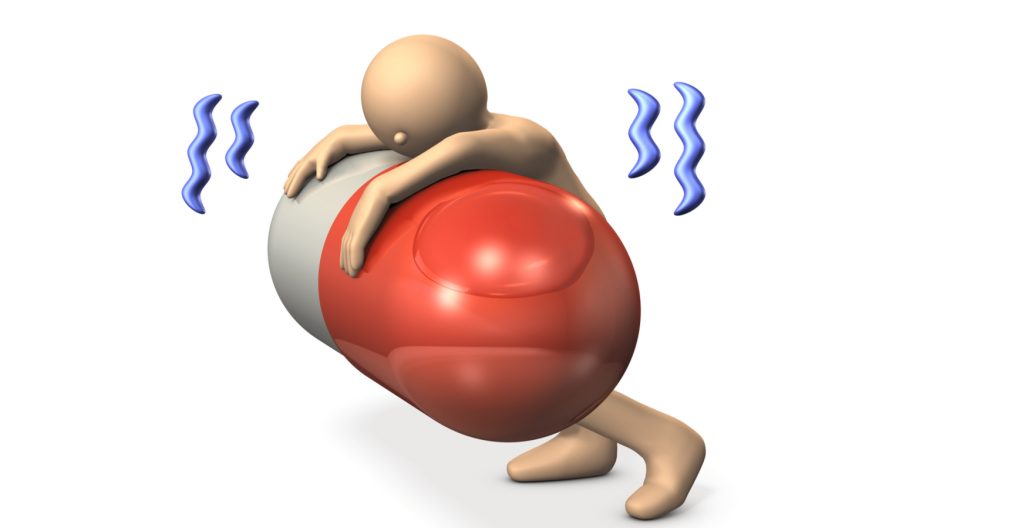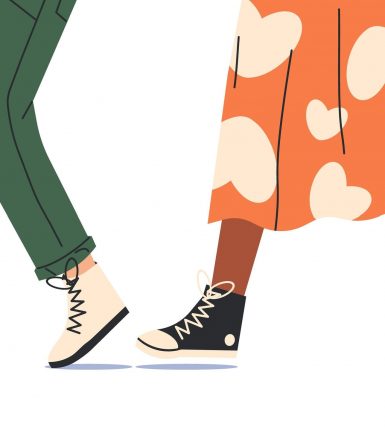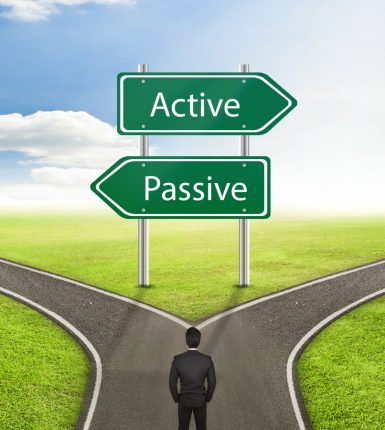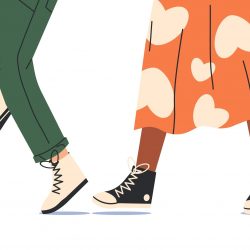As I sit here reflecting on my journey with pain, I am wondering if you remember me? You saw me during one of the most difficult periods of my life, when I was struggling to live with intense daily pain. I saw lots of clinicians during that time, but you were different. You enabled and empowered me to live well with pain. I will always remember you.
I remember crying in your clinic room because I just didn’t know how to face a future with pain. I was struggling to function as an independent person and I just didn’t know what to do. I was constantly tired as I was unable to sleep and I was struggling with the side effects of pain medication. I was struggling to work and I was struggling to play. Gosh they were difficult years.
You treated me with compassion. You didn’t over-react when I cried, and you told me it was understandable. You listened to my story with genuine interest and curiosity. You asked me questions to clarify and you validated me. You allowed me the space to tell you parts of my story that I might have assumed were irrelevant, but that were important to me. I felt able to disclose anything about my pain, including the irrational fears and emotions it was causing me to experience. You didn’t assume that because I was finding life difficult that I was depressed. I will always be grateful for that. You were gentle with me and made me feel that you cared. You got to know me as a person and then used that understanding to support my care. You made me feel valued and I trusted you.

Although it was hard to hear, you told me that my pain was not going to go away, that I would be living with it for the rest of my life. You showed me genuine care and concern that day. It can’t have been easy to tell me, but I’m glad that you did. I needed to understand my likely future. My acceptance journey was made so much easier by the compassion you showed me.
I struggled to go back to an active teaching job, my pain was intense. Teaching was the only career I had known, and my identity and being revolved around it. I worked hard to get back to doing it the best I could, but you could see how much I struggled. You asked me if I’d thought about changing my career to something better suited to my pain. I had desperately needed someone to ask me that, but of course I didn’t know that at the time. Soon after our conversation I stopped teaching and embarked on a self-employed career. I’ve never looked back. I will always be grateful to you for having the courage to start that difficult conversation with me.
I entered your clinic room with all the baggage that society gave me. I assumed that if I was compliant and did whatever you asked me to then you would ‘fix’ me. I thought you knew everything about my condition and could mind read how it was affecting me. I didn’t know how to be an equal partner in my care. I didn’t realise that I was the real expert in my condition, and that I needed to combine my expertise and understanding with yours so that we could work out a way forward together.
Over time you gently and carefully empowered me to become a more equal and active partner in my care. I will always be grateful for that. I needed to move from being passive and waiting for you to ‘fix’ me to being more active and responsible for my care. If you had coldly told me this during our first appointment, I wouldn’t have taken it on board. I’m grateful for your gentle and careful support to help me get to that level of understanding.

I came to you as an individual, in personality, social background and in health. I had ‘failed’ several previous treatments and medications were making me ill. You could have treated me in strict accordance with NICE guidelines for sciatica, and simply repeated treatments that hadn’t worked for me, but you didn’t. You viewed me as the individual I was and personalised my care. You considered my life outside the clinic door and helped me improve my overall independence and function. You listened to what was important in my life.
I didn’t really understand my condition when we met. I had been shown a model of the spine and I knew about prolapsed discs, but I didn’t really understand about neuropathic pain, and the complexity of pain. I assumed I needed to chase medications, injections and surgery. I had no idea that there were other things I could do that would help me live well with pain. I assumed that someone, somewhere would be able to ‘fix’ me.
You carefully and patiently explained about pain. You individualised your explanations and let me ask questions. You built on the basic understanding I had with verbal, pictorial and physical explanations and with suggestions for reading at home. You generously shared your knowledge and understanding with me, never making me feel stupid. You helped me understand that there was more to my pain experience than the prolapsed disc I had seen on the MRI. You opened my eyes to all the different things that affect my pain, both positive and negative. You took me from thinking that the pain was basically unidimensional (ie there was something physically wrong with my back at that moment in time and it was therefore responding with pain), to an understanding that pain is much more complex and affected by many different things, including what I did during the day and my emotions. I began to recognise that if I was stressed then my pain may increase, and if I was distracted then my pain might decrease. I began to realise what was making my pain worse and what was making it better. You helped me ‘tune in’ to my body. You opened the door to me understanding what in simple terms might be feeding into my pain, and even more importantly what I could try and do to self-manage the pain. Words cannot explain how important this learning has been to me.

You listened when I described the difficulties I was having with medications. I now know that my responses to medications are not typical, and some might say extreme, but you never made me feel that I was making things up, or that it was ‘all in my head’. You taught me to listen to my body and safely alter the medication dose so that side effects were tolerable. You helped me understand that medications were not a long-term solution and that I needed to explore different ways to manage my pain.
Having explained the complexities of pain to me, and the dangers of taking medication long term, you could have stopped there and let me work out the rest for myself, but you didn’t. You patiently and insightfully worked with me to help me learn strategies to self-manage my pain. Perhaps I could have worked some of these out for myself but working with you fast tracked the process, and made me feel supported and more confident. You were careful that you didn’t just tell me what to do, you enabled and empowered me, providing me with transferable skills I could use for the rest of my pain journey.
I could go on much longer about all the positive things you did for me, and that have enabled me to live a good and fulfilling life with pain, but I hope I have said enough to show you how your compassion, skills and understanding have changed my life, in a way that other clinicians were unable to do. I know I will never be pain free, but you have helped me move from a life struggling with pain, to one that I can enjoy and live well despite pain. For that, and everything, I am hugely grateful.

Tina
@livingwellpain
www.livingwellpain.net
This letter was written by me and will form part of the course materials for a training course on Psychologically Informed Practice being developed by the Physiotherapy Pain Association (PPA) and Health Innovation Network (HIN).
(With permission for me to share)

Physiotherapy Pain Association
www.ppa.csp.org.uk
@PhysioPainAssoc










